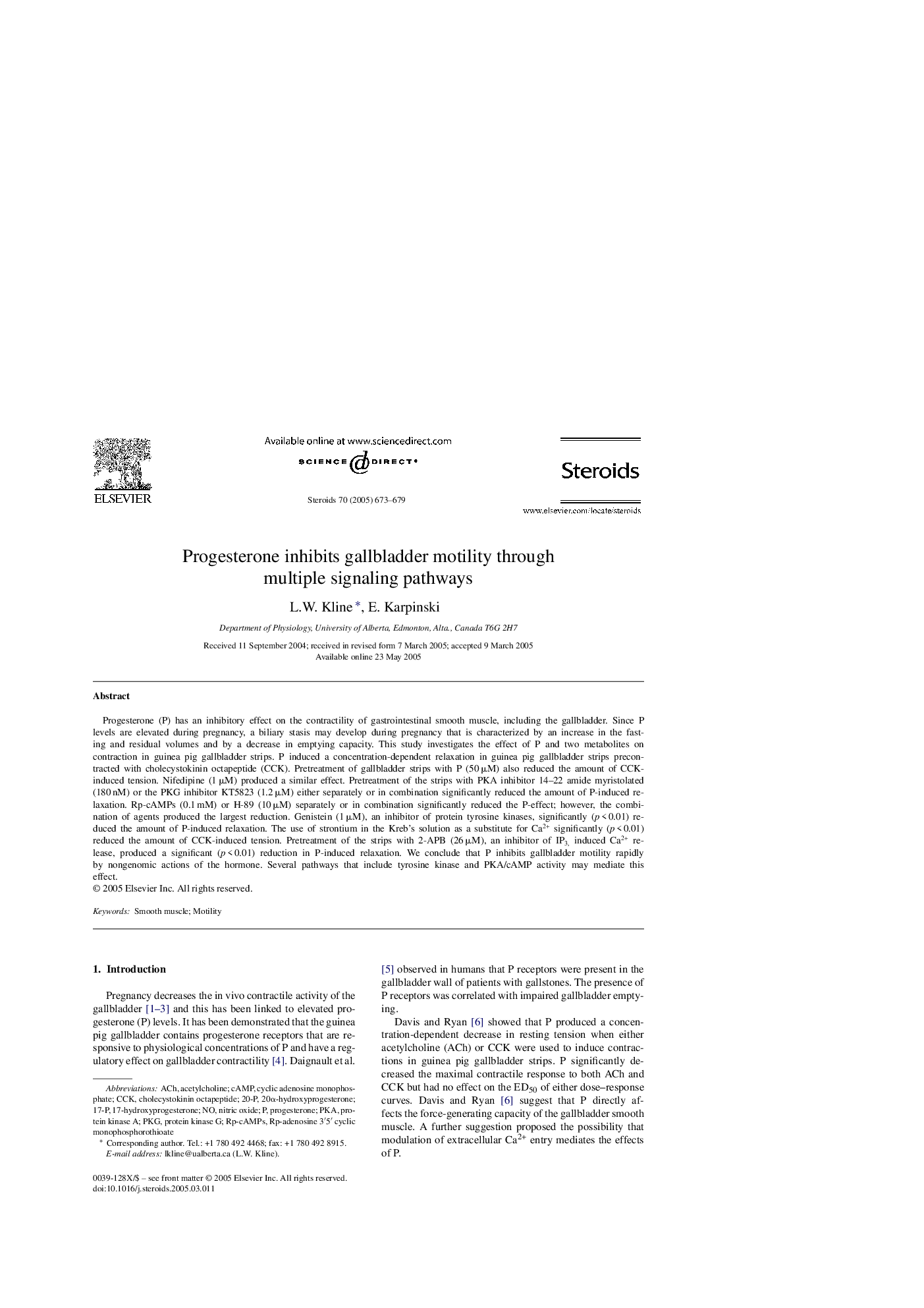| Article ID | Journal | Published Year | Pages | File Type |
|---|---|---|---|---|
| 10847864 | Steroids | 2005 | 7 Pages |
Abstract
Progesterone (P) has an inhibitory effect on the contractility of gastrointestinal smooth muscle, including the gallbladder. Since P levels are elevated during pregnancy, a biliary stasis may develop during pregnancy that is characterized by an increase in the fasting and residual volumes and by a decrease in emptying capacity. This study investigates the effect of P and two metabolites on contraction in guinea pig gallbladder strips. P induced a concentration-dependent relaxation in guinea pig gallbladder strips precontracted with cholecystokinin octapeptide (CCK). Pretreatment of gallbladder strips with P (50 μM) also reduced the amount of CCK-induced tension. Nifedipine (1 μM) produced a similar effect. Pretreatment of the strips with PKA inhibitor 14-22 amide myristolated (180 nM) or the PKG inhibitor KT5823 (1.2 μM) either separately or in combination significantly reduced the amount of P-induced relaxation. Rp-cAMPs (0.1 mM) or H-89 (10 μM) separately or in combination significantly reduced the P-effect; however, the combination of agents produced the largest reduction. Genistein (1 μM), an inhibitor of protein tyrosine kinases, significantly (p < 0.01) reduced the amount of P-induced relaxation. The use of strontium in the Kreb's solution as a substitute for Ca2+ significantly (p < 0.01) reduced the amount of CCK-induced tension. Pretreatment of the strips with 2-APB (26 μM), an inhibitor of IP3, induced Ca2+ release, produced a significant (p < 0.01) reduction in P-induced relaxation. We conclude that P inhibits gallbladder motility rapidly by nongenomic actions of the hormone. Several pathways that include tyrosine kinase and PKA/cAMP activity may mediate this effect.
Keywords
Related Topics
Life Sciences
Biochemistry, Genetics and Molecular Biology
Biochemistry
Authors
L.W. Kline, E. Karpinski,
